Description
wunduru mununggurr
Earth pigments on Stringybark
45 x 51 cm
Year: 2023
ID: 2275-23
Gurtha
The totemic significance of fire to the Yunupiŋu family of the Gumatj clan is paramount. It is said that the Gumatj clan language, Dhuwalandja, is itself the tongue of flame. This language, or tongue, like the flame, cuts through all artifice. It incinerates dishonesty leaving only the bones of the truth.
In the initial interface between Yolŋu sacred art and the Western art world an early decision was made on the Yolŋu side to use figurative imagery to cover the miny’tji in paintings. This ‘miny’tji’ is the source and record of the sacred identity of the law and the land portrayed. Throughout the ensuing decades there has been a conscious distinction between painting done in a ceremonial context and that for the ‘outside world’. In all the latter cases the ‘background’ design has been ‘covered’ by a figurative representation relevant to the law therein.
This usually takes the form of a totemic species such as crocodile or shark for instance. The reasoning is to protect uninitiated people from the power of unadulterated miny’tji which is the vessel of sacred ancestral forces. This work is solely the miny’tji of the Gumatj embodying gurtha or fire. The relaxation of this convention has happened only since 2000 and particularly in renderings on Larrakitj or memorial poles. It may be that as the viewer cannot see the entirety of any pole from one vantage this is less ‘dangerous’ than a two dimensional surface but that is only speculation from an outside perspective.
In ancestral times, the leaders of Yirritja moiety clans used fire for the first time during a ceremony at Ngalarrwuy in Gumatj country. This came about as fire brought to the Madarrpa clan country by Bäru the ancestral crocodile, spread north and swept through the ceremonial ground. From this ceremonial ground the fire spread further to other sites.
Various ancestral animals were affected and reacted in different ways. These animals became sacred totems of the Gumatj people and the areas associated with these events became important sites. The diamond patterning is the ‘miny’tji’, motif or sacred clan design, of this clan and this place. It summons the theme of this fire. The Gumatj clan design associated with these events, a diamond design, represents fire; the red flames, the white smoke and ash, the black charcoal and the yellow dust.
Clans owning connected parts of this sequence of ancestral events share variations of this diamond design. There are other levels of meaning including an analysis of the constituent parts of Guku, bush honey which resides in the hollow Stringybark tree; the skin, blood, fat and bone of a Gumatj person; the mud and weeds of a billabong close to this place which is a home of Baru, the crocodile who itself is a Gumatj power totem metamorphosed through fire.
This is a Fire of supernatural intensity. So powerful that it transforms the land it touched for all time. its identity is etched into every atom of Gumatj land it spread, or was carried, to. Or more accurately the identity of the land holds the memory of The Fire (capitalised like ‘The Flood’ of the Bible). The Victorian fires help us understand the message carried in this ancient pattern. This design is sacred because it reveals a hidden secret. After all the trees have grown back and the living witnesses have died there will be no outward sign of such a cataclysm. But long after that the land still remembers; it’s DNA permanently altered. The incomprehensible power of that fire is burnt into the land forever though all else is healed. It is important to remember.
Fire is also domesticity and the hearth, light, warmth, cooked food, security. The flaming tongues are a language of creativity and truth and the sparks are offspring and generative.

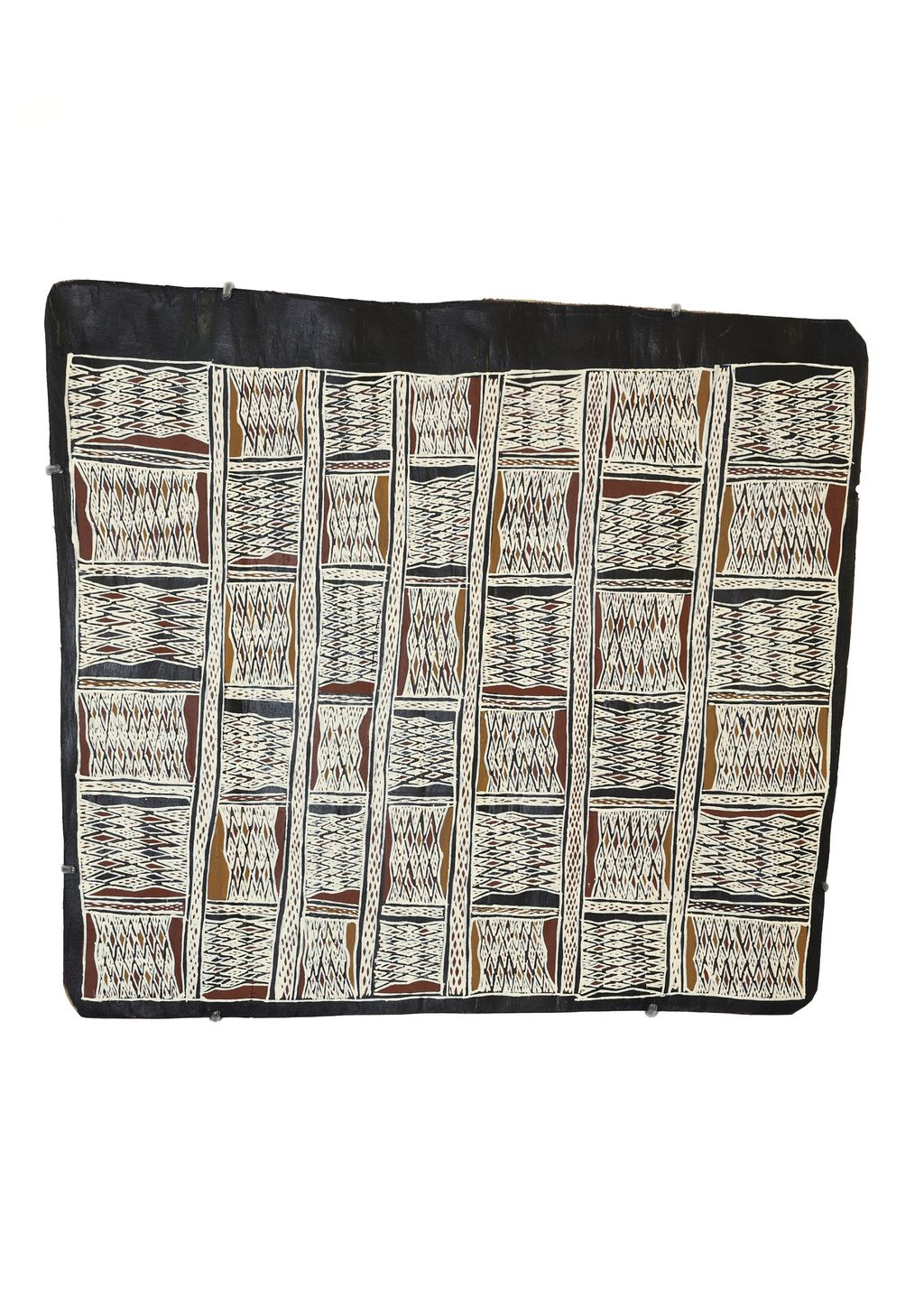
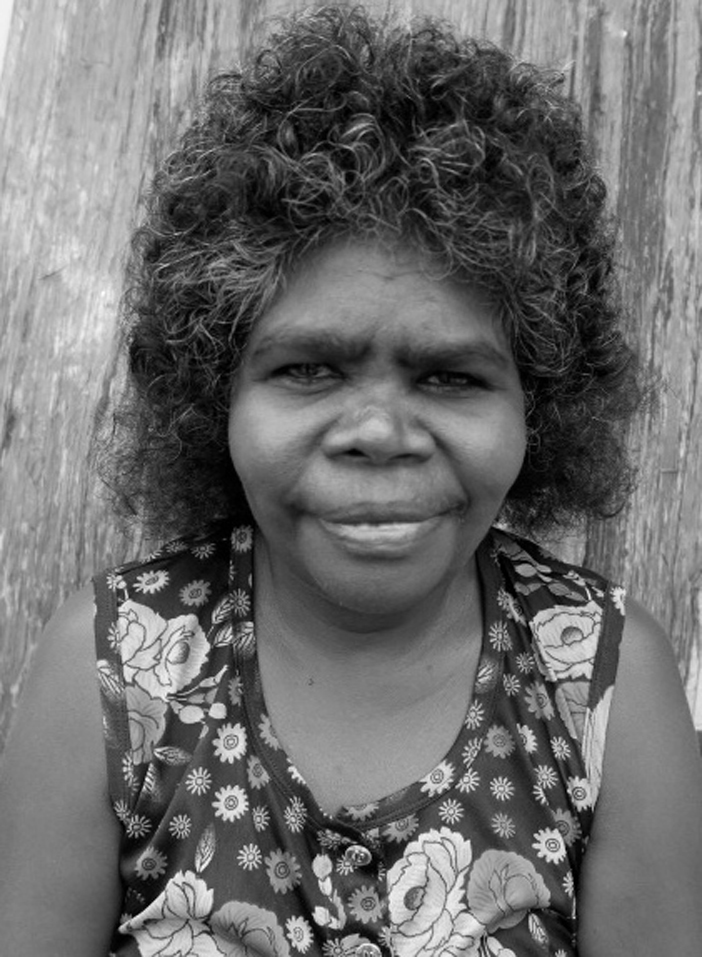
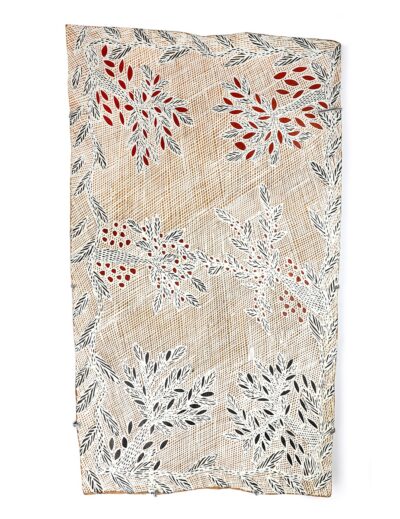
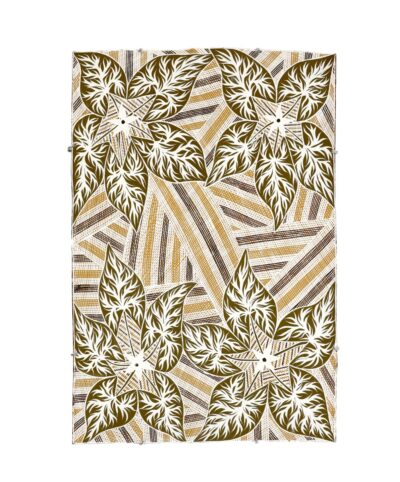
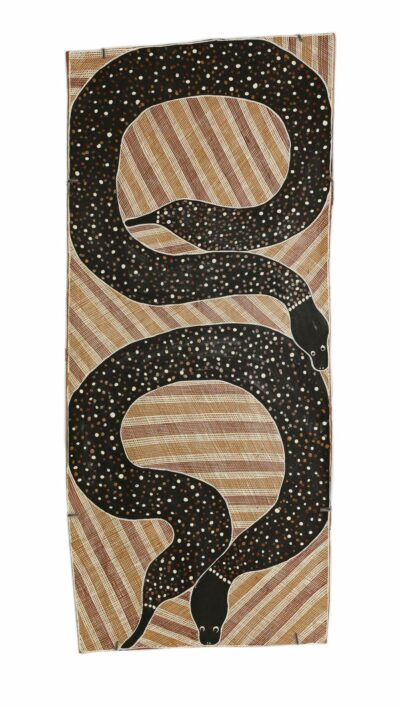
Reviews
There are no reviews yet.